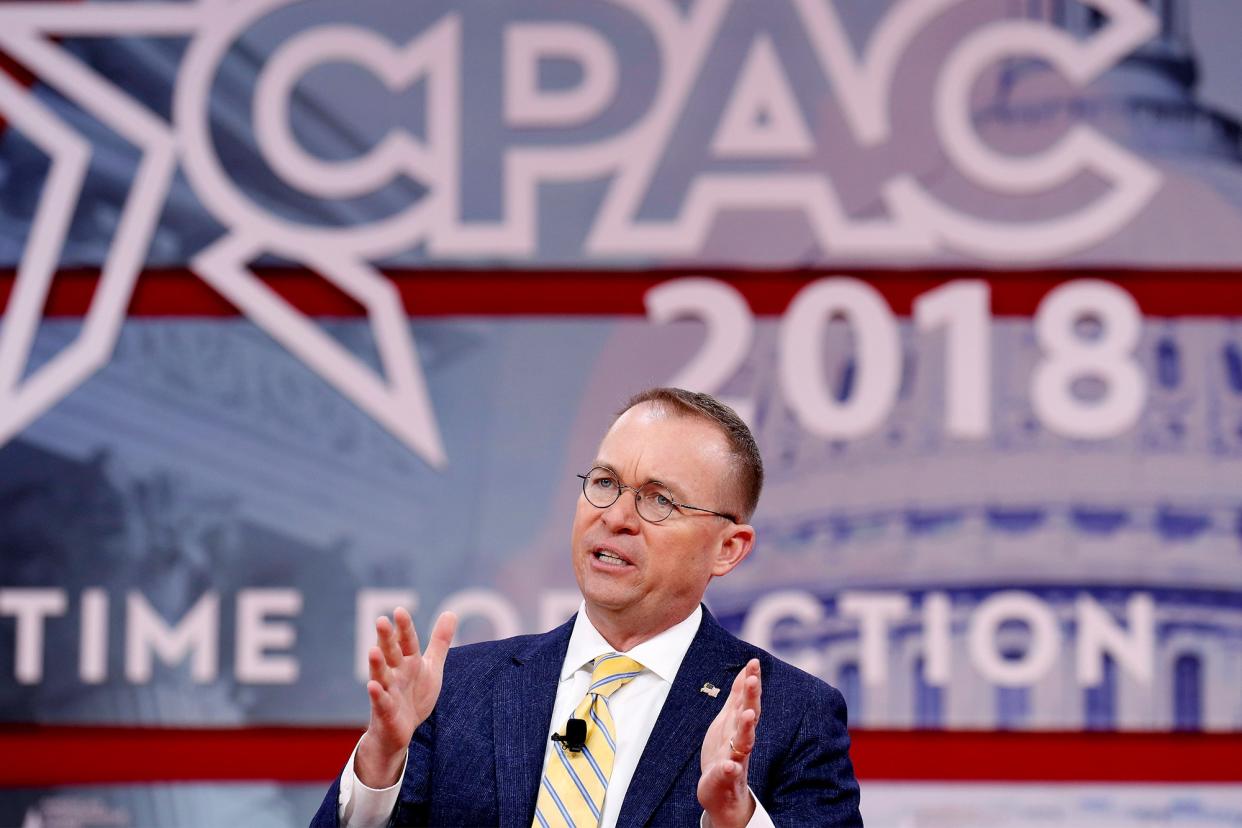Mick Mulvaney Buries Elizabeth Warren’s Dreams in a Shallow Grave

Until 135 days ago, the mission of the Consumer Financial Protection Bureau was pretty straightforward: to protect consumers from abuses in the financial sector. With jurisdiction over payday lenders, banks, credit unions, debt collectors, mortgage-servicing operations, and other companies with in the U.S., one of the most important and effective tools in the C.F.P.B.’s arsenal was enforcement actions, wherein the bureau would fine bad actors and return money to consumers who’d been ripped off. Under Obama-era director Richard Cordray, the agency issued an average of between two and four enforcement actions per month, ultimately returning $3.97 billion in cash to American consumers, plus an additional $7.93 billion through things like lower loan balances or debt relief. In one instance, Bank of America was forced to return $727 million to consumers over deceptive credit card practices; smaller enforcement actions aided victims of debt collection, student borrowers, and bank customers. By C.F.P.B.’s estimate, roughly 1 in 10 Americans have received some kind of reimbursement or other type of redress since the bureau was created. But since Cordray resigned and Donald Trump installed Mick “Some of us would like to get rid of the C.F.P.B.” Mulvaney in his place, things have changed ever so slightly. Instead of two to four enforcement actions each month, the C.F.P.B. is now issuing none—as in zero, nothing, nil, nada, zilch, zip, not one, not two, but diddly-freaking-squat.
According to a report by the Associated Press, a Freedom of Information request shows the bureau has literally not issued a single enforcement action since the Trump administration took it over 135 days ago. To be fair, no one was laboring under the assumption that Mulvaney, who as a South Carolina representative called the C.F.P.B. a “sick, sad joke” and co-sponsored legislation to get rid of it, would run the place in the same manner as his predecessor. In ole Mick’s few short months there, he’s already eased restrictions on loan sharks; pulled back from an investigation into a data breach that affected half of all Americans; and told Senator Elizabeth Warren, who came up with the idea for the C.F.P.B. in the first place, to zip it and let him take a hacksaw to the agency in peace. But one assumed that Mulvaney would issue an enforcement action or two, if only to stave off the impression that he’s completely controlled by the financial industry. However, such is not the case!
In a statement, the C.F.P.B. claimed the slowdown is due to a new administration taking over, saying, “it is our job to enforce the law, and we take it very seriously.” (Incidentally, the bureau’s work continued without interruption for Trump’s first 11 months in office.) As the A.P. notes, “this is the longest stretch without enforcement actions in the C.F.P.B.’s history.” Lauren Saunders, associate director at the National Consumer Law Center, told reporter Ken Sweet that enforcement is “one of the most important parts of C.F.P.B., because of the signals it is able to send to markets . . . if a company violates the law, it needs to be held accountable and called out.”
Senator Warren has yet to issue a statement on Mulvaney’s record of zero enforcements, but there’s a chance she’s saving up her best material for later this week, when the acting director will appear for a two-day hearing before Congress. In January, the senator from Massachusetts told the Hive it was clear Mulvaney was “more interested in doing the bidding of big banks than standing up for American families,” adding that she found the turn of events at her brainchild agency to be “disgraceful.” Presumably, ole Mick can expect a similar verbal disemboweling come Wednesday.

